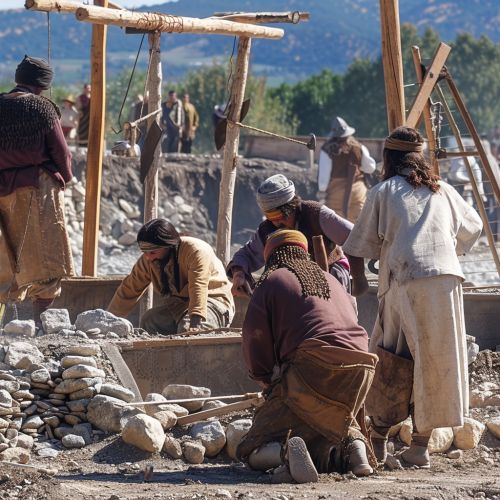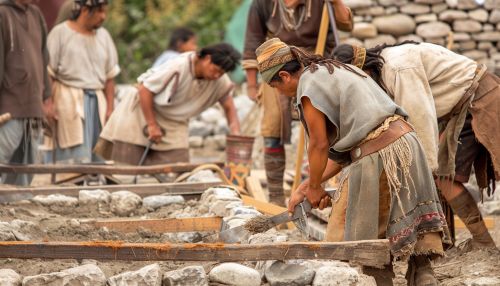Experimental Archaeology
Introduction
Experimental archaeology is a field of study that employs a hands-on approach to understanding the past. It involves the replication and testing of ancient technologies, practices, and environments to gain a deeper understanding of the historical and prehistoric human experience. This approach allows archaeologists to test hypotheses and theories about past cultures and societies in a controlled, experimental setting.
History
The concept of experimental archaeology has its roots in the early 20th century, when archaeologists began to recognize the value of experimentation in understanding the past. The term "experimental archaeology" was first coined by American archaeologist John L. Cotter in the 1950s. However, it wasn't until the 1960s and 1970s that the field began to gain widespread recognition and acceptance within the archaeological community.
Methodology
Experimental archaeology employs a variety of methods and techniques, depending on the specific research question being investigated. These can range from the replication of ancient tools and technologies, to the reconstruction of ancient buildings and environments, to the simulation of past social and economic systems. The goal of these experiments is to test hypotheses and theories about the past in a controlled, experimental setting.
Applications
Experimental archaeology has been used to investigate a wide range of topics and issues in archaeology. Some of the most common applications include the study of ancient technologies, such as pottery making, metalworking, and stone tool production; the reconstruction of ancient buildings and environments; and the simulation of past social and economic systems.
Limitations
While experimental archaeology can provide valuable insights into the past, it is not without its limitations. One of the main criticisms of experimental archaeology is that it can never fully replicate the conditions of the past. Despite these limitations, experimental archaeology remains a valuable tool in the archaeologist's toolkit, providing a hands-on approach to understanding the past.
Future Directions
As the field of experimental archaeology continues to evolve, new methodologies and technologies are being developed to enhance the accuracy and reliability of experimental results. These advancements are expected to further expand the scope and applicability of experimental archaeology in the future.
See Also


